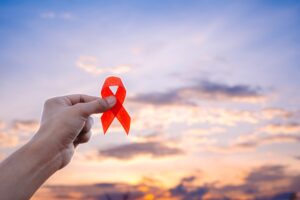The recovery space is hectic, and it’s easy to get caught up in the day-to-day work of caring for people with addiction. While that hands-on…
Studies show that LGBTQ people are more than twice as likely to struggle with substance use compared to the general population. This is often due…
Finding the right detox center is an essential first step in recovery. You’ll find plenty of options if you search “detox facilities near me” in…
Observed annually on December 1, World AIDS Day raises awareness about HIV/AIDS, supports those living with the virus, and honors lives lost. It’s also a…
Addiction, whether to alcohol, club drugs, or gambling, is a complex neurological disorder that affects the brain’s reward, motivation, and memory systems. Four factors distinguish…
A dual diagnosis describes individuals who experience a mental health disorder and a substance use disorder simultaneously. Also known as co-occurring disorder or co-morbidity, this…
Trauma, stemming from violence, abuse, or accidents, can have long-lasting psychological effects if left untreated. Often, these effects contribute to substance abuse as people attempt…
Once touted as a weight loss aid and cognitive enhancer, methamphetamine, commonly known as meth, has since become notorious as a highly addictive and dangerous…
Deciding to remove a substance from your life is a huge step. But after the initial excitement wears off, you might ask more practical questions,…
The statistics on LGBTQ substance misuse paint a sobering picture: LGBTQ adults are 1.5 to 3 times more likely than heterosexuals to have an alcohol-use…










